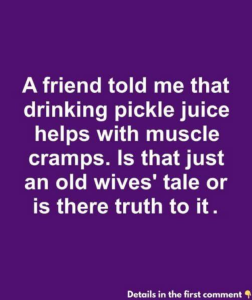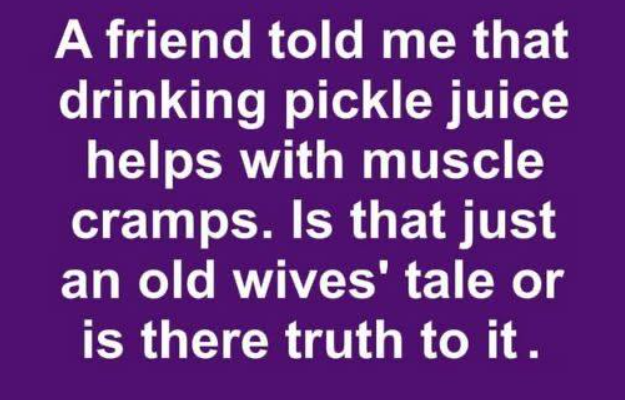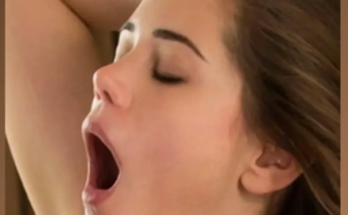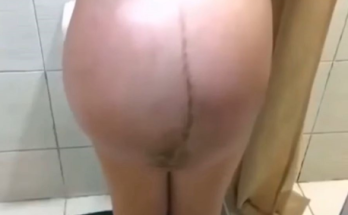
Can Drinking Pickle Juice Actually Relieve Muscle Cramps, or Is That a Myth?
For decades, athletes and everyday fitness enthusiasts alike have swapped tips about recovery. Some recommend bananas for potassium, others swear by electrolyte drinks, and still others—especially in sports like football, track, and cycling—insist that drinking pickle juice is the quickest cure for painful muscle cramps. The image is almost comical: someone gasping after a grueling workout, clutching their calf in pain, only to be handed a shot glass of salty green liquid straight from a pickle jar. But behind the laughter lies a serious question: can pickle juice truly relieve muscle cramps, or is this just another enduring myth of the fitness world?
The Origins of the Pickle Juice Craze
Pickle juice as a cramp remedy first gained national attention in the early 2000s when trainers in professional football began using it during games. The Philadelphia Eagles, in particular, famously credited pickle juice with helping players endure extreme heat during a 2000 matchup against the Dallas Cowboys. Since then, the practice has spread among athletes in various sports. Some drink it before intense exercise to ward off cramps, while others use it as a quick “cure” the moment a cramp sets in.
The idea spread beyond professional athletes. Recreational runners, weekend cyclists, and even people who suffer from night leg cramps began experimenting with pickle juice, often reporting surprising success. Word of mouth made it sound like a miracle solution, but the science has only recently started to catch up.
What Causes Muscle Cramps?
Before deciding whether pickle juice works, it helps to understand why cramps occur. A muscle cramp is a sudden, involuntary contraction of one or more muscles, often in the calves, thighs, or feet. They can be caused by:
-
Dehydration – When you sweat heavily, you lose not just water but also electrolytes, especially sodium. This imbalance may trigger cramping.
-
Electrolyte Imbalances – Sodium, potassium, magnesium, and calcium are all crucial for muscle function. Too little (or too much) can affect the nerve signals that control muscles.
-
Neurological Triggers – More recent research suggests cramps may not simply be about dehydration or electrolytes. Instead, they may stem from hyperactive nerve signals firing at the muscles, causing sudden contractions.
-
Fatigue – Overworked muscles are more prone to cramping, particularly in hot or humid conditions.
This means that any treatment that relieves cramps could be working through multiple mechanisms: replenishing fluids, restoring electrolytes, or calming nerve activity.
Why Pickle Juice?
Pickle juice contains three main components that make it an intriguing remedy:
-
Sodium – The salty brine is packed with sodium, which is one of the primary electrolytes lost through sweat.
-
Vinegar – Most pickle brines include vinegar, which has been studied for its possible neurological effects.
-
Fluids – It provides hydration, though the small quantities typically consumed make this less significant.
At first glance, it makes sense to think pickle juice relieves cramps because of its sodium content. Sodium is essential for nerve and muscle function, so restoring it quickly could, in theory, stop a cramp. But here’s where the story gets more complicated.
The Science Behind Pickle Juice and Cramp Relief
Research studies have tested whether pickle juice works, and the results are fascinating.
-
The 2010 North Dakota State University Study
In one of the most famous experiments, researchers induced cramps in dehydrated athletes by electrically stimulating their leg muscles. Once the cramps began, some participants drank pickle juice, others drank water, and others nothing. Surprisingly, those who drank pickle juice experienced relief about 45% faster than those who drank nothing—and water had no effect at all.Here’s the kicker: the relief came too quickly to be explained by sodium or fluid absorption. It takes at least 10–15 minutes for the body to process electrolytes from digestion, yet cramps were relieved in under 90 seconds. This suggested that the mechanism was not hydration or electrolyte replacement.
-
Neurological Mechanism Theory
Scientists now believe that vinegar in pickle juice stimulates receptors in the mouth, throat, or stomach that trigger a reflex in the nervous system, effectively calming the misfiring nerve signals that cause cramps. In other words, the body isn’t replenishing lost nutrients; it’s “short-circuiting” the cramp by sending new signals to the nerves.
This theory helps explain why pickle juice seems to work even faster than traditional sports drinks.
What Athletes Say
Anecdotally, many athletes swear by pickle juice. Professional football players have been seen drinking it on the sidelines. Runners and triathletes sometimes carry small bottles or pouches of pickle brine during races. For them, it’s not just about hydration but about instant relief when a cramp threatens to end their performance.
Cyclists have also reported that just a few sips can prevent a full-blown cramp during long rides. Some even prepare their own homemade pickle brine, while others rely on commercial products marketed specifically as “pickle juice sports shots.”
Other Possible Benefits of Pickle Juice
Aside from cramps, pickle juice has other potential benefits:
-
Hydration Support – Its sodium content can help retain fluids in the body after heavy sweating.
-
Blood Sugar Regulation – Some research suggests vinegar may help regulate blood sugar levels, which could aid recovery.
-
Digestive Aid – Vinegar-based solutions can sometimes improve digestion and gut function.
Of course, these benefits are not unique to pickle juice. Electrolyte drinks, vinegar-based tonics, and hydration strategies can achieve similar effects.
Risks and Downsides
Despite its reputation as a miracle cure, pickle juice isn’t for everyone.
-
High Sodium – For people with high blood pressure, heart disease, or kidney issues, the sodium load could be harmful.
-
Digestive Discomfort – The vinegar and salt can upset the stomach, especially in large amounts.
-
Not a Long-Term Fix – While it may stop cramps quickly, pickle juice doesn’t replace the need for overall hydration, balanced electrolytes, and rest.
For most healthy athletes, however, small amounts of pickle juice are considered safe.
Myth or Reality?
So, does pickle juice really relieve muscle cramps, or is it a myth? The answer lies somewhere in between.
-
Not a Myth: Multiple studies and countless athlete testimonials confirm that pickle juice can relieve cramps faster than water or doing nothing. The effect is real and measurable.
-
But Not a Magic Potion: It doesn’t “cure” cramps by replenishing lost nutrients. Instead, it likely works through a neurological mechanism. This means it helps in the moment but doesn’t replace proper training, hydration, and nutrition.
Practical Tips for Using Pickle Juice
If you want to try pickle juice for cramps, here are a few guidelines:
-
Drink a Small Amount – Around 1–2 ounces is usually enough. More may cause stomach upset.
-
Use It During or After Exercise – It’s most effective when cramps begin or seem imminent.
-
Don’t Rely on It Alone – Continue to hydrate with water and replenish electrolytes through a balanced diet or sports drinks.
-
Listen to Your Body – If you have high blood pressure or are sensitive to sodium, consult your doctor before using it regularly.
Conclusion
Pickle juice as a muscle cramp remedy may sound like a quirky locker-room myth, but science supports its effectiveness. The relief it provides is real, though not because of hydration or electrolytes, but rather because of a unique neurological reflex triggered by vinegar. While it isn’t a replacement for good nutrition and hydration, it can be a surprisingly effective tool for athletes and anyone struggling with sudden cramps.
So the next time a cramp seizes your calf during a workout—or even in the middle of the night—don’t be surprised if the best medicine is sitting quietly in your refrigerator, inside that jar of pickles.



